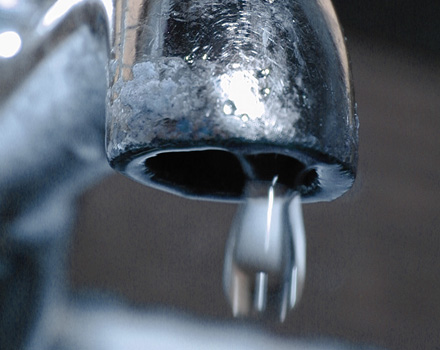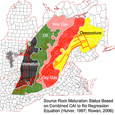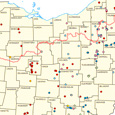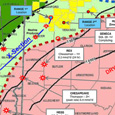Radioactivity in River May Be Linked to Fracking
Thursday, October 3, 2013

A new Duke University study shows a possible link between radioactivity in a Pennsylvania river and a wastewater treatment plant, according to Climate Central.
Read it:
“Scientists found elevated levels of radioactivity in river water at a site where treated fracking wastewater from oil and gas production sites in western Pennsylvania’s Marcellus shale is released into a creek.”
Researchers studied sediment samples collected downstream of the Josephine Brine Treatment Facility in Indiana County, Pennsylvania. Radium levels in that part of the river were 200 times greater than the levels upstream of the treatment facility.
The wastewater plant treats flowback water, water that returns to the surface during the fracking process. The wastewater is known to contain radioactive materials.
Water usage
During the fracturing of a typical horizontal well between 4-7 million gallons of freshwater is used. Much of that water stays in the ground, but some water is extracted and some flows from the well, what’s known as flowback.
Wastewater, or sometimes called brine water, can be disposed of by injecting the water thousands of feet underground in deep-injection wells or by treating the water and recycling it in specialized wastewater treatment plants.
Cumulative
According to the study, radioactivity downstream of the treatment plant was initially at low levels. But, over time the levels accumulated in the river, the result of long-term treatment of brine water.




